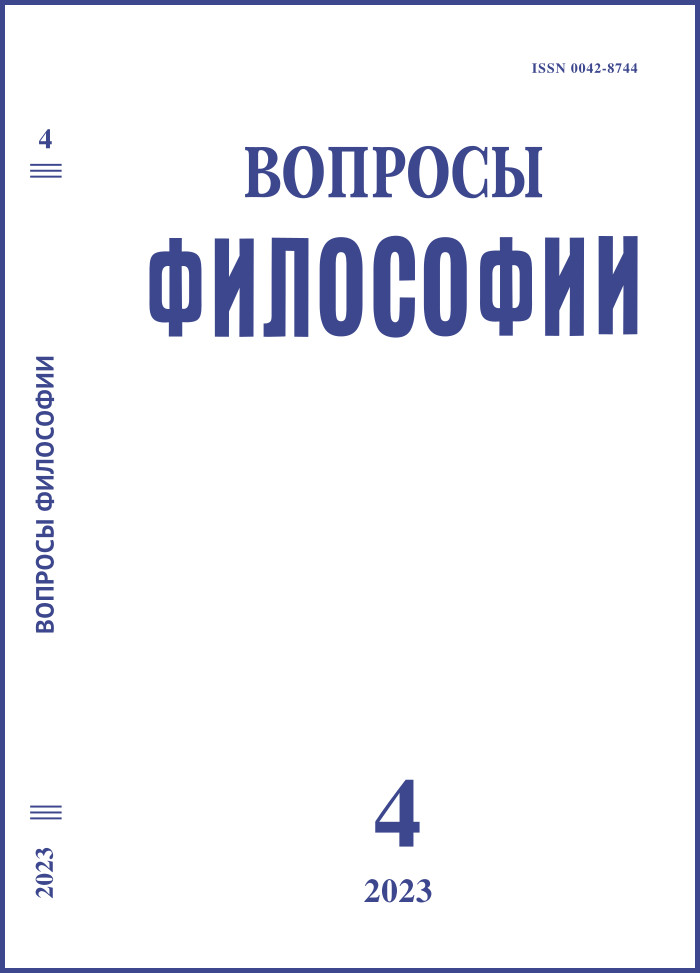Philosophy Lessons and Matters of Philosophical Education in the Works of Gabriel Marcel
DOI:
https://doi.org/10.21146/0042-8744-2023-4-81-92Keywords:
philosophy, teaching, philosopher in society, intersubjectivity, existence, transcendence, encounter, problem and mystery, abstract and concrete, universal and mass, philosophical experience.Abstract
The article deals with the clarification of the forms of teaching philosophy and the characteristic mistakes in teaching, in the interpretation of the French Catholic philosopher and playwright Gabriel Marcel (1889–1973). The place and influence of philosophy in the living space of culture was not, as it is known, static and permanent. In different epochs, it was called either a queen or a servant, and its perception, both by the philosophers themselves and by merely educated and poorly educated people, changed, as did the forms of “wisdom lessons”. Today, the positions of philosophy in the world leave much to be desired, the point of its meaning, place and role in modern society turns out to be debatable, and the teaching of philosophy and the teaching of philosophizing are problematized. These problems are closely related to Marcel’s definition of the essence of philosophy and the role of the philosopher in society. Marcel argues that philosophy presupposes openness to others and unity of people on the basis of ascent to the transcendent. To examine these topics, the thinker introduces the concepts of intersubjectivity, philosophical experience, etc., and distinguishes between the concepts of problem and mystery. The philosopher is called to a deep examination of the foundations and prospects of the modern world. These definitions are becoming radically relevant in the era in which the possibilities of nuclear suicide of mankind have opened up and the philosopher cannot stand aside while remaining unbiased. This means, Marcel concludes, that teaching philosophy should be based on openness, inclusiveness and integration of people, passing them “flame, not ashes”

